125 years ago, on March 29, 1895, Ernst Jünger, one of the most important and original thinkers of the short century, was born in Heidelberg. Sixty years have passed since the publication of his work "At the wall of time" which, reread today, can only amaze us at the punctuality of the prophecies it contains about the world to come, the world in which we find ourselves living today: from the figure paradigmatic of the "unknown soldier" to the advent of the so-called "mass-man", passing through the phenomenon of the "disappearance of borders" and finally coming to highlight the work of destruction of the natural rhythms in which man has always been inserted, accomplished by means of the "titanism" of Science.
di Marco Maculotti
cover: Rudolf Schlichter, portrait by Jünger
We have already pointed out, in first article dedicated to the work of Ernst Jünger At the wall of time, published in 1959, the ability of the aforementioned to have been able to read the crisis of the modern world in the light of the so-called historiographical question. To this end we have related some of his intuitions with those of other authors (Eliade, Guénon, Evola, Spengler), roughly attributable to the line of thought of so-called Traditionalism. In this second article we will focus on what we could define as real prophecies on the descending path that Western society would take in the act of approaching that historical watershed that Jünger calls the "Wall of Time". Prophecies which, as we shall see, sound today, sixty years after their formulation, with disarming precision.
In one of these prophecies, Jünger had foreseen that "by means of treaties, signed either on the basis of a peaceful understanding, or by coercive means, or in both ways, [the unity of the world would be] sanctioned" [§93]. This super-state and super-national organism, in his view, would have drawn strength from the individual states themselves, which would have "renounced [t] or certain sectors of their sovereignty, which are dismantled in favor of society, of human society»[§93]. "Democratic forces will prevail over others, at all levels: from the world government to the smallest cells, up to the family"; the danger of war between nations decreases but that of civil wars and racial conflicts increases [§179].
Alternatively, Jünger argues, this world government could be achieved through a third major war, at the end of which "a single power will hold sovereignty and the adequate equipment"; the author goes so far as to state that if «in the first world war the monarchies were eliminated, in the second the national states, with the third to remain intact it would be only one of the large continental areas» [§93]. In short, it will come to emerge a new state, «promoted in the name of humanity and in the name of humanity fought against; a state that basically questions and changes the very concept of humanity " [§153].
And from since “words like war and peace change, it is probable that beyond the time wall, words like 'State' will also change. Probably the World State will indicate one status, a station of which neither form nor duration can be predicted»[§165]. «Starting from the year 40, then - the author says elsewhere [§XNUMX] - we should live in an era of world peace, in immense cities, surrounded by Hellenistic works of art and having a powerful and perfected technique at our disposal. For the first time there would be only one hand to hold the terrestrial globe; there would no longer be 'margins' in the old sense ». With this in mind, in a world without states, world citizenship will simply become one status, with the consequence - we add - that the citizens of the states that oppose its advent will be de facto considered as part of a sort of "second-tier world", now considered "out of history". Already Nietzsche, on the other hand, as Jünger points out, had foreseen the creation of a World State - but he had also predicted its inevitable decline.
⁂ ⁂ ⁂
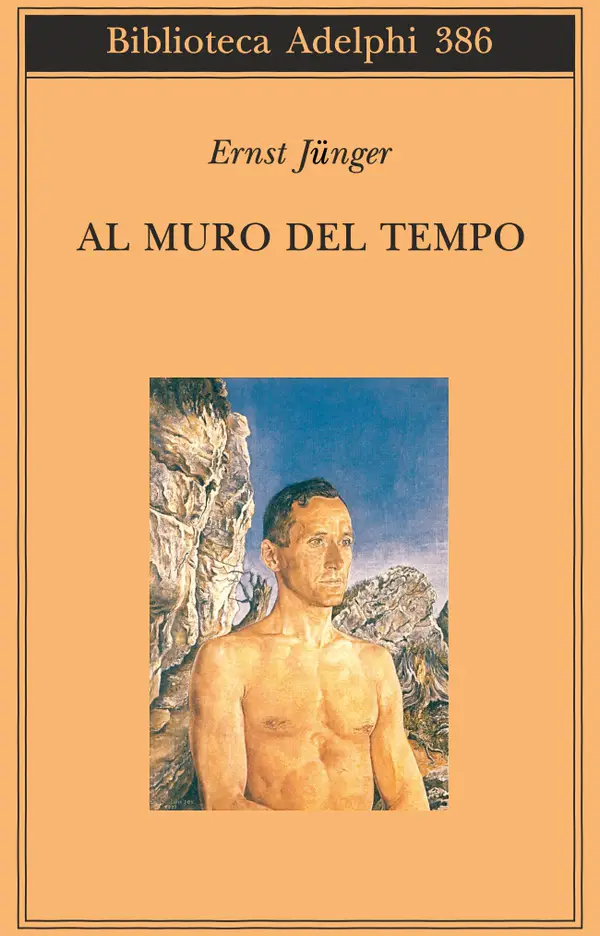
The unknown soldier
In any case, the fundamental objectives of the "New World Order" will include that of "Limiting the heroic life, and the bonds that follow, in favor of productive performance" [§153]. Regarding the first point, think only of war in the modern world; as F. Volpi points out [1]:
«Jünger's perspective unhinges traditional interpretations of war to show us the phenomenon in its pure state. Where others then saw the struggle for the fatherland, the interests of capitalism or the claims of Chauvinism, he grasps theprimal experience in which life he discovers his cards, in which, in his dangerous leaning towards senseless nothingness, it manifest its deepest and most contradictory essence. »
In the economy of this Jüngerian vision, the The Unknown Soldier, a paradigm of man in constant struggle with the impersonal demons of this dark age, is not a definable stricto sensu a hero, unable to boast a well-defined personality or individuality. No and put tells of his deeds; "He has no name and, after all, he has no homeland". He is simply "a son of the earth, dark reduced, he is neither founder nor builder; rather, it is he who fertilizes Mother Earth»[§52], that is to say Kālī the Black, "She who has dominion over becoming". The image of the Great Mother who, marking the passage of the ages with his frenzied dance until the moment of the definitive explosion, which will take place at wall of time, returns at other times, between the lines, in this exceptional Jüngerian work, greatly influenced by the cyclical conception of history in ancient traditions.
The archetype of the unknown soldier as a representation of modern man permeated Jüngerian philosophy since the XNUMXs; already of it The worker, Ours recognized the existence of processes proper to war even in peacetime life, throughout the highly mechanized modern existence of alienating metropolises, who aimed, as Evola well summed up, a [2]:
"[...] to strike the individual and supplant him with an impersonal and replaceable 'type' characterized by a certain uniformity - faces of men and women assuming the character of masks, 'metal masks in one, cosmetic masks in the other'; in the gestures, in the expression, something like an 'abstract cruelty', in correlation with the increasingly large space occupied in the world today by everything that is technicization, number and geometry and by what refers to objective links. "
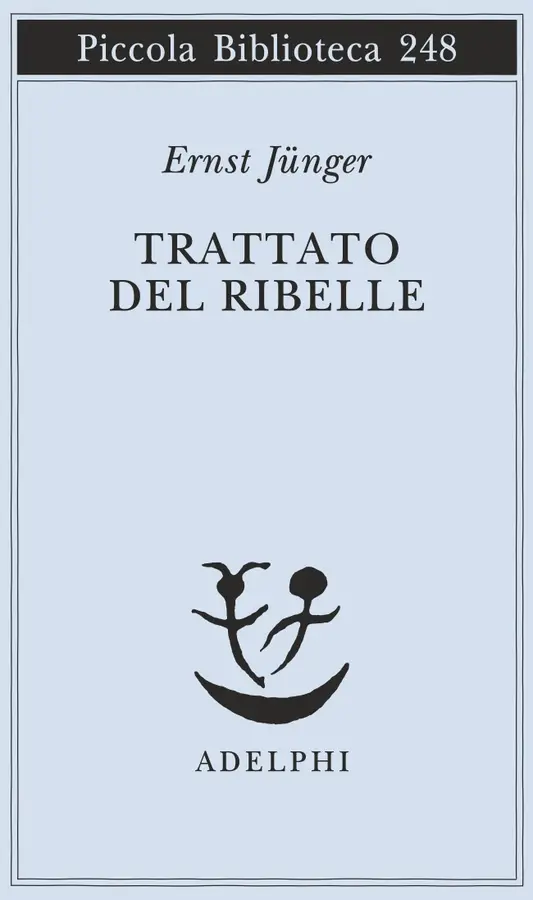
The unknown soldier, the 'Nameless', also appears in Treaty of the Rebel (1951), essay in which Jünger describes him as "A hero, a tamer of flaming worlds, capable of bearing enormous burdens in the midst of mechanical devastation", "Worthy descendant of the western cavalry" [3]. For its part, Evola, reviewing European fateful hours (1936) by KA Rohan a few years after the release of The worker by Jünger, he wrote, certainly influenced by the image of the unknown soldier [4]: "Even in a ruthless story of extermination operated mainly by mechanical and impersonal forces, similar to unleashed telluric forces, a heroism is possible: a collective and anonymous heroism rather than personal and luminous, the heroism that one can have in the chaos of a hopeless catastrophe ». F. Lamendola notes that, at the end of the First World War [5]:
"Demobilized after the defeat of Germany in 1918, [Jünger] exalts a new figure of tragic hero, the Worker, just as he had exalted that of the fighter, the man of the age of technology, who (according to Oswald's prophecy Spengler ne The sunset of the West) is still able to snatch some flash of corrupted light from the irreversible crisis of European civilization, against the background of the smoke from the chimneys and the futuristic masses thrown into a frenzy of movement, of activity, of rebellion - singular mixture of socialist motives of the class struggle, anarchoids of the revolt against all authorities and ultra-nationalists of the earth and blood »
It is a question, taking up the discourse developed in other chapters of At the wall of time, of the so-called initiatory test, individual and collective, which according to Jünger should have faced European civilization from that moment on: evidence of the so-called "regression in Chaos", in the undifferentiated, the descent into the Underworld populated by titanic powers, giants and protein forms, sons of Gaea, the Mater dark. She is the "Long Night of the Soul" which, in the pessimistic vision of the last Eliade - which refers to the shamanic literature of archaic peoples -, Europe will have to face, as if "swallowed by a monster", chewed, dismembered and re -composed.
⁂ ⁂ ⁂
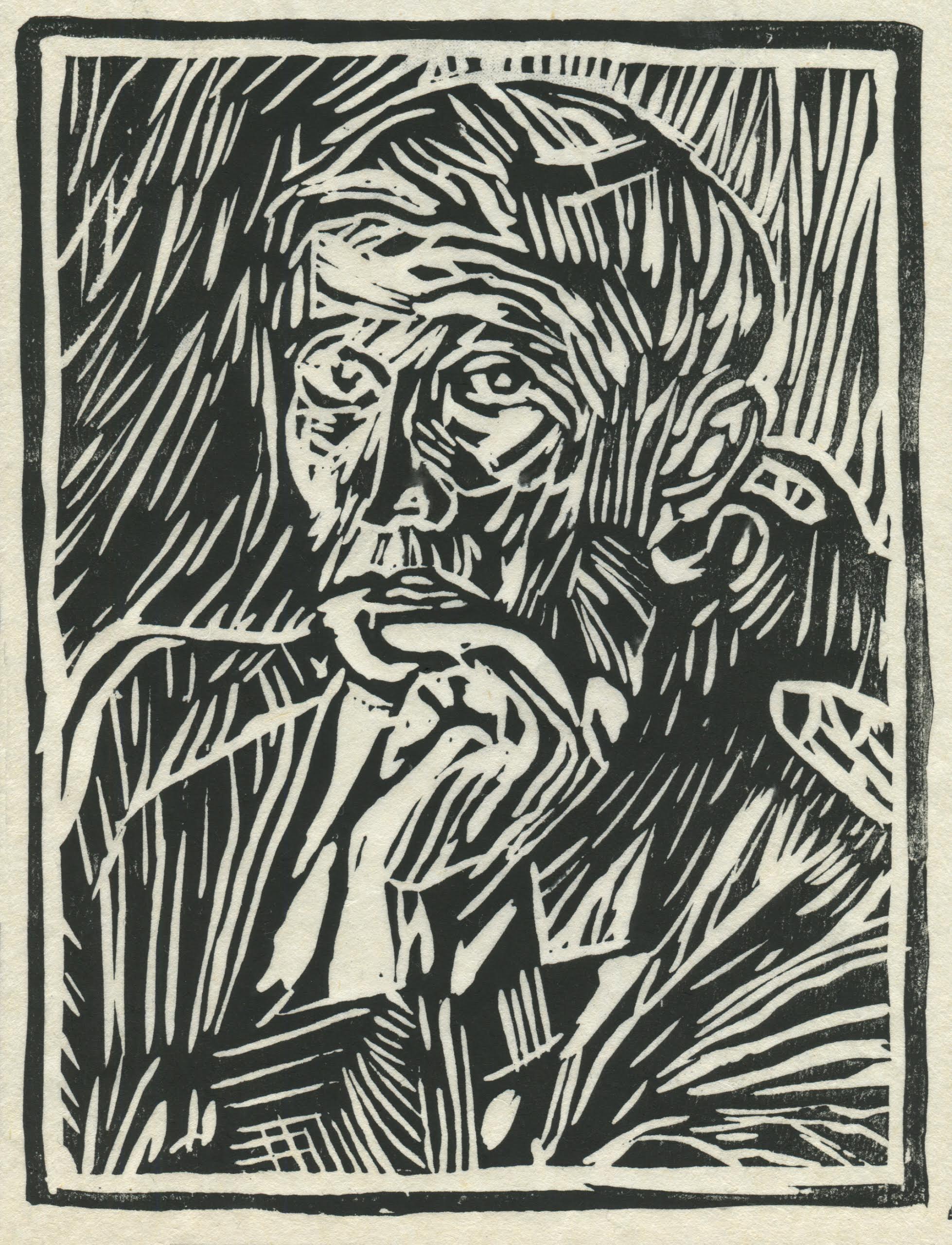
The advent of man-mass
With similar concepts, Evola expressed the same concerns, recognizing in theintegration in a phagocytizing suprastate and supracultural mechanism, namely in the "Disintegration of the individual into the so-called collective", "The elimination in man of all that has the value of an autonomous personality"; among the means used to achieve this the author lists "The mechanization, disintellectualization and rationalization of every activity, on all levels" [6]:
« Restricting every horizon to that of the economy, the machine becomes the center of a new messianic promise and rationalization also presents itself as one of the ways to liquidate the 'residues' and' individualistic accidents' of the bourgeois era '. "
The end is, - it is not difficult to understand - "The realization ofman-mass and integral materialism, in every domain " [7]: the "Death of God" of Nietzschean memory extended from collective to individual experience. Evola traced the typical historicized example of this process of dissolution of the individual in the Soviet Union, precisely in the Stalinist phase, during which "society becomes a machine in which there is a single engine, the communist state" and in which "man is but a lever or wheel of this machine, and it is enough for him to object to be immediately overwhelmed or broken by the gear, in which the value of human life is null and any infamy is permitted […]. It is the ideal of the Superstate, as a left inversion of the traditional organic ideal " [8].
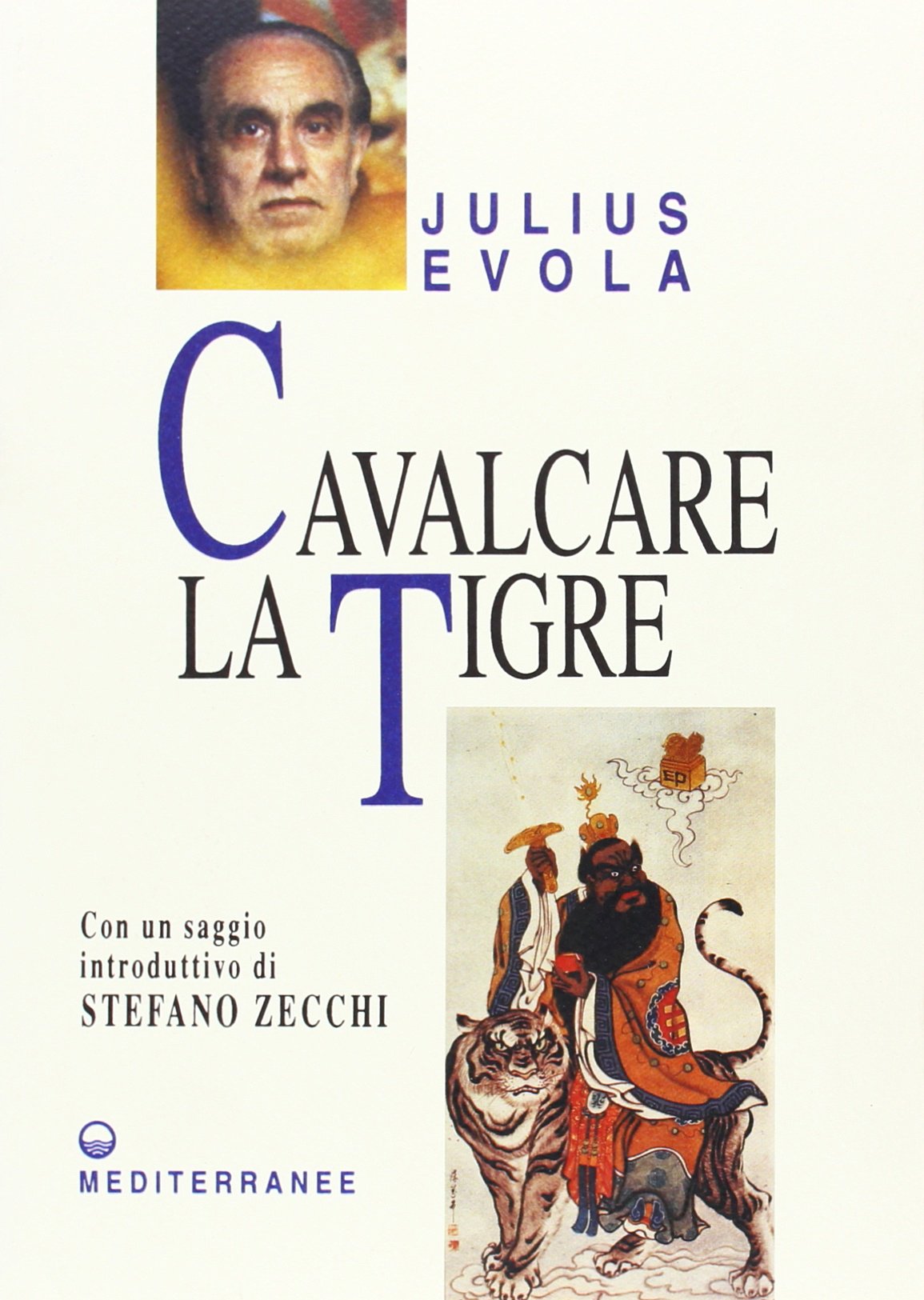
However, it must be remembered that, in Evola's opinion - as well as other traditionalists - not only the USSR but also the United States [9] would have played a fundamental role in the nefarious action aimed at overturning the European cultural vision that took place with the advent of the twentieth century: America devoted to unbridled capitalism would be nothing but the other side of the coin of Soviet communism, which added up would represent the two heads of the same Leviathan. Although with different means, on closer inspection, the two currents of the "counter-tradition" (as Guénon defined it) of the twentieth century led dramatically towards the same, chilling prospect: that of a world in which the individual, deprived of any value beyond his role within a phagocytizing system, appears no different from a sacrificial victim destined to be 'crushed' by the System through the perpetual activation of its gigantic gears.
The joint action of these two currents within the "plan of world subversion" will lead, according to Evola [10], to the social Armageddon, deemed necessary by the agents of counter-initiation so that the last phase of involution is fully realized up to the fourth and last caste, the shapeless mass, which will therefore lead to"Advent of a collectivized humanity", over which what in ancient India was considered the third caste will govern: that of the vaishya, or merchants. So that [11]:
«[…] Even if the catastrophe feared by some in relation to the use of atomic weapons should not occur, at the fulfillment of this whole destiny this civilization of titans, of steel, crystal and concrete metropolis, of teeming masses, of algebras and machines chaining the forces of matter, of rulers of skies and oceans, will appear as a world that swings in its orbit and turns to dissolve from it to move away and getting lost permanently in the spaces, where there is no longer any light, out of the left one lit by the acceleration of its own fall. »
⁂ ⁂ ⁂
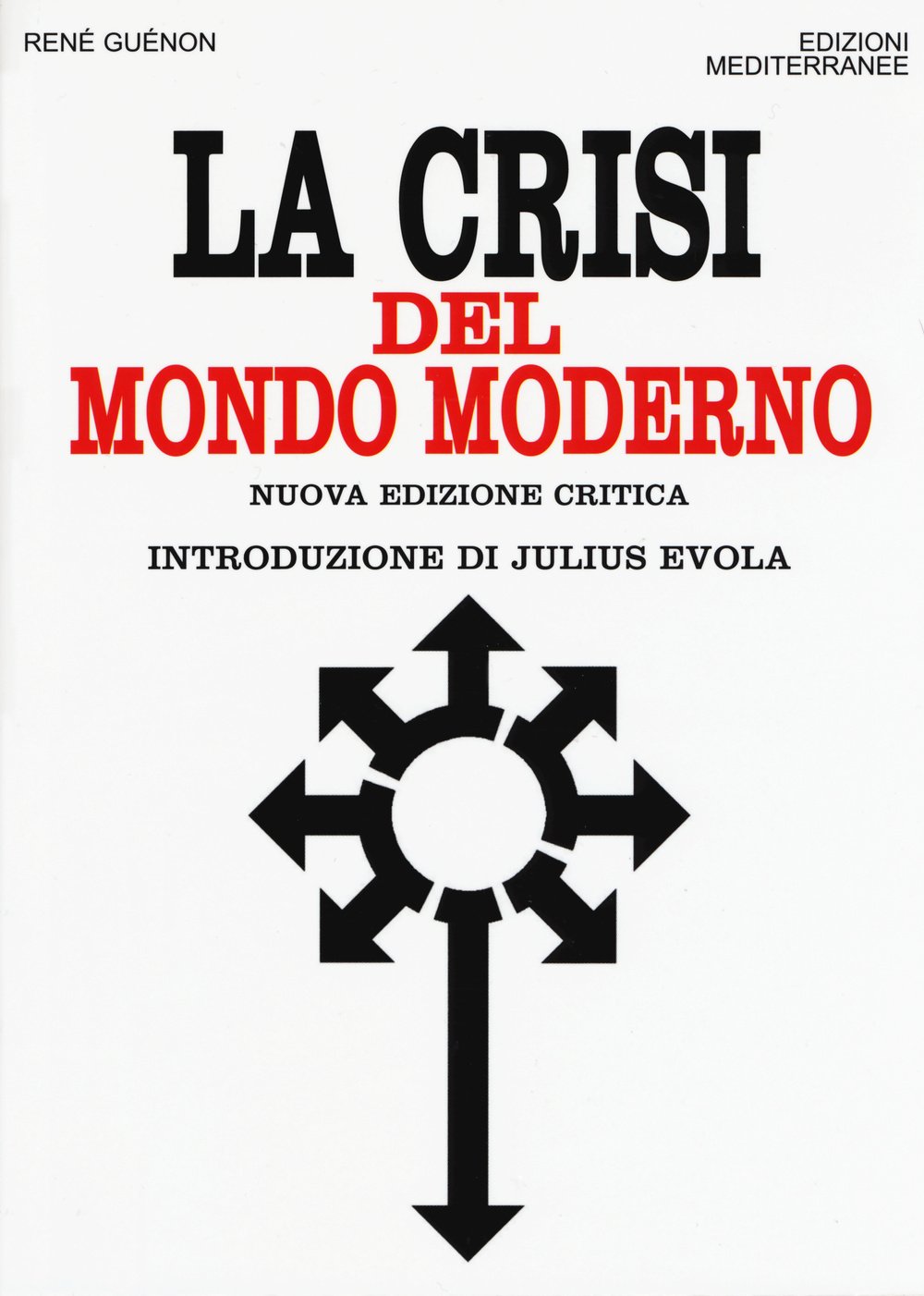
Population growth and the reason for "cosmic fatigue"
It should be noted that, returning to Jünger, this process of uniformity of the masses is strictly connected to the need, felt by the 'upper floors' of the social pyramid, to increase production beyond all limits; this leads inevitably and fatally - and will lead more and more - to a "Abrupt demographic increase of the planet" [§155]. It is clear to everyone how this actually happened: the world population since the release of At the wall of time to date it has almost tripled.
A guy sudden and unstoppable population increase, it comes to our attention, is traditionally linked to the end of cycles and the arrival of catastrophes: in the Andean myths it is said that Viracocha exterminated the giants that had reproduced up to occupy the whole earth; in the Mahābhārata Indian, the earth personified in the goddess Prthivī, asks Brahmā to reduce the number of creatures since he is unable to bear the weight which has now become unsustainable; the Guarani of Mato Grosso think that nature is "old and tired of living" and their dreams several times medicine-man have heard the Earth beg: “I've devoured too many corpses, I'm full and exhausted. Father, let this end! " [12].
This is the Eliadian motif of the "Cosmic fatigue": the theme of earth oppressed by the weight of humanity proliferated to excess, without any restraint of the cosmic and natural balances of the host planet. In all these myths, the Earth begs the creator god to be relieved of the weight of a population that never ceases to multiply [13]; the uranic deity, invoked, will send a purifying cataclysm, in the form of flood / deluge or destruction through fire (ekpyrosis). The occurrence of such a catastrophe would indicate, as Jünger affirms [§92], "not only that order has been disturbed, but also that […] it wants to be restored"; in other words: not only the end of one cycle, but also the beginning of the next.
⁂ ⁂ ⁂
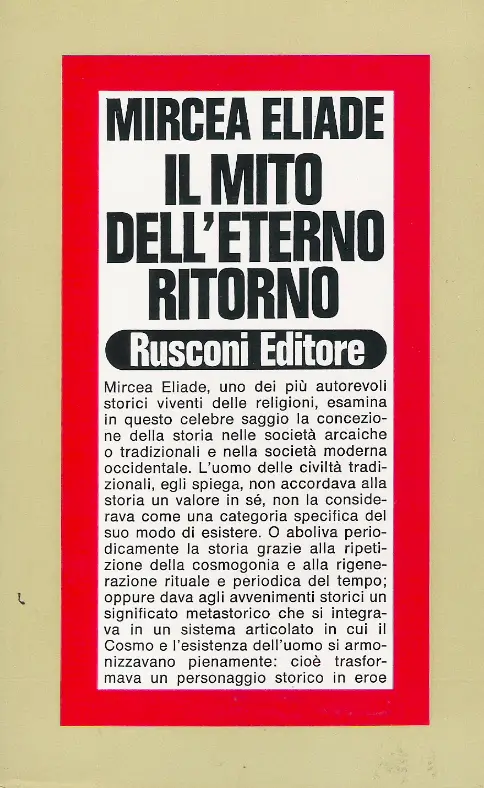
"The man-who-has-no-time"
In this chaotic orgy the individual, like a puppet in the hands of the Leviathan, undergoes a mutation virtually Darwinian, becoming "the man who has no time", which escapes "what is the culmination of work" [§23], that is, "non-work", or - we could say heliadically - the ability to to get out of historical-profane time and to access sacred time. Of this "sacred time", Jünger writes: "Religions teach that this time is our real field to cultivate, that this time can be brought to fulfillment and fullness in a fruitful way. And in this they agree, regardless of whether they hypothesize the end of time or a return "[§181]. This "sacred time" is the equivalent ofillud tempus eliadian, the true time, which is a static instant that does not flow: the instant at the dawn of creation itself, which the individual can experience only with an escape from historical and profane time.
By now almost entirely missing the relationship with this "sacred time", the current society made up of many "men who have no time" and who do not know the value of non-work is ultimately configured as a prison from which it is impossible to escape ; in this sense Jünger probably agreed with Evola's well-known statement according to which [14]:
« If there has ever been a slave civilization on a grand scale, this is exactly modern civilization […]. And since the modern vision of life, in its materialism, has deprived the individual of any possibility of giving his destiny something transcendent, of seeing a sign and a symbol in it, so today's slavery is the darkest and most desperate of all. they have never known. It is therefore not surprising that in the masses of modern slaves dark forces of world subversion have found an easy, obtuse instrument for the pursuit of their goals: while where it has already triumphed, in the so-called endless 'labor camps' we see it used methodically, satanically physical and moral enslavement of man for the purposes of a collectivization and the eradication of any value of the personality »
⁂ ⁂ ⁂
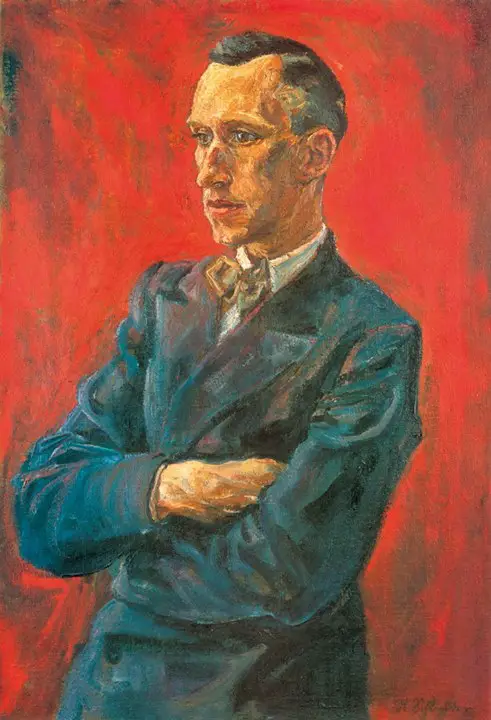
The disappearance of the borders and the Nomos
In this scenario, according to Jünger, the phenomenon he defined will also be fundamental "Disappearance of borders" [§149]:
«[…] Not only as phenomena, but in their very meaning, in their intrinsic value. And with them the nomos, the power appointed to safeguard them. Here, and not in the physical threat, the abyss of that thrill that seizes man at the sight of the creation of Proteus must be sought. In this he foreshadows more than the mere destruction of created form, which moreover death also destroys, he foreshadows the heralds of an attack generated from the original fund. It is the same thrill that assails him at the sight of the snake. "
It should also be emphasized how Jünger puts boundaries, tutelary gods of the same and form in relation to each other: tutelary gods are in his view not only guarantors of territorial boundaries, but also of form: "this is why the gods do not tolerate even beings chaotic and chaotic, the monstrous deformity of the giants "[§149], or the lower mythical powers. Because of this, once the borders have disappeared, once the barriers between lawful and illegal have collapsed, this will give the green light to "chaotic and chaotic beings": at that point we will only have to listen to the Resonant Horn of Heimdallr and see the definitive advent of the Ragnarokkr.
During the coming times "The law will relax, the reference to the father will gradually become weaker and ultimately even absurd" [§173]: thus ours foresees the collapse of the patriarchal society and of all the "borders" and "barriers" it has erected, in favor of a matriarchal society founded on demographic flattening: "The bonds of paternal law will have to lose power to the advantage of those of maternal law" [§179]. In this scenario characterized by the disappearance of the nomos and from the fall of the distinction between right and wrong, it will not be surprising that "the death penalty loses its raison d'etre, while murder without motives flourishes" [§179].
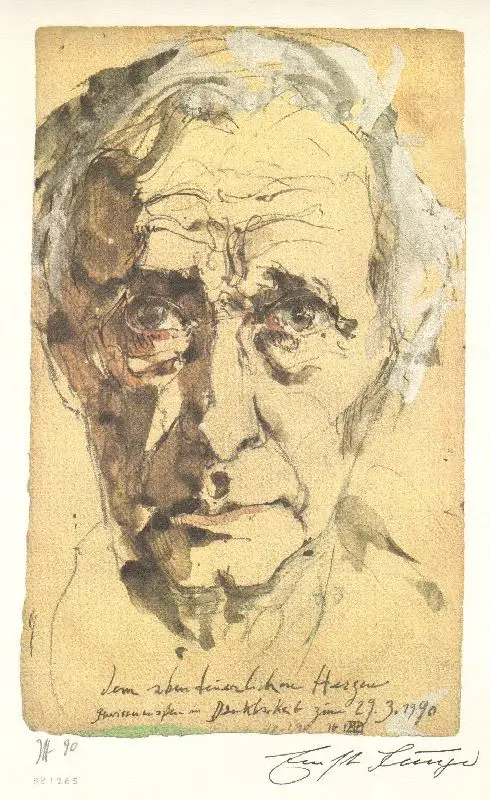
Therefore, not only the territorial borders, but also the legal ones will be subject to revision: the discernment between licit and illicit will become more and more imperceptible. A paradigmatic phenomenon of this new scenario will be the increasingly numerous conflicts that will arise in the world of law: “Nature is about to break even the barriers of law; more and more frequent are the cases in which technical and biological considerations prevail over legal ones " [§145]. For example, the author refers to the dangerous area of genetic experimentation when he refers to the "thrill that seizes man at the sight of the creation of Proteus", the latter being, according to the myth, a marine divinity with a hybrid nature , half man and half fish.
Elsewhere, Jünger also refers to the question of artificial fertilization as something that "is presented by science and accepted by the common conscience" [§150]: this, of course, will once again be a direct consequence of the progressive and ever more accelerated impoverishment of nomos, that is to say of "becoming the land without borders", to be understood as we have seen both in a physical and juridical, and even ontological sense. Our also underlines the absolutely new character - and clearly titanic - of the "Experiments that affect geological, and even cosmic economics", affirming that "man had never taken the will to do anything similar" [§122]: influencing the climate, in ancient traditions, was the prerogative of "superhuman and superhuman" spheres: Titans and demons, and later "witches and sorcerers". In the world to come, governments and armies will increasingly intervene on it, using the weapons of rationalistic science., which therefore seems to have taken only the titanic ambition of controlling the elements of the magical and "witchy" tradition, effectively eliminating everything that could put religious limits on it.
⁂ ⁂ ⁂
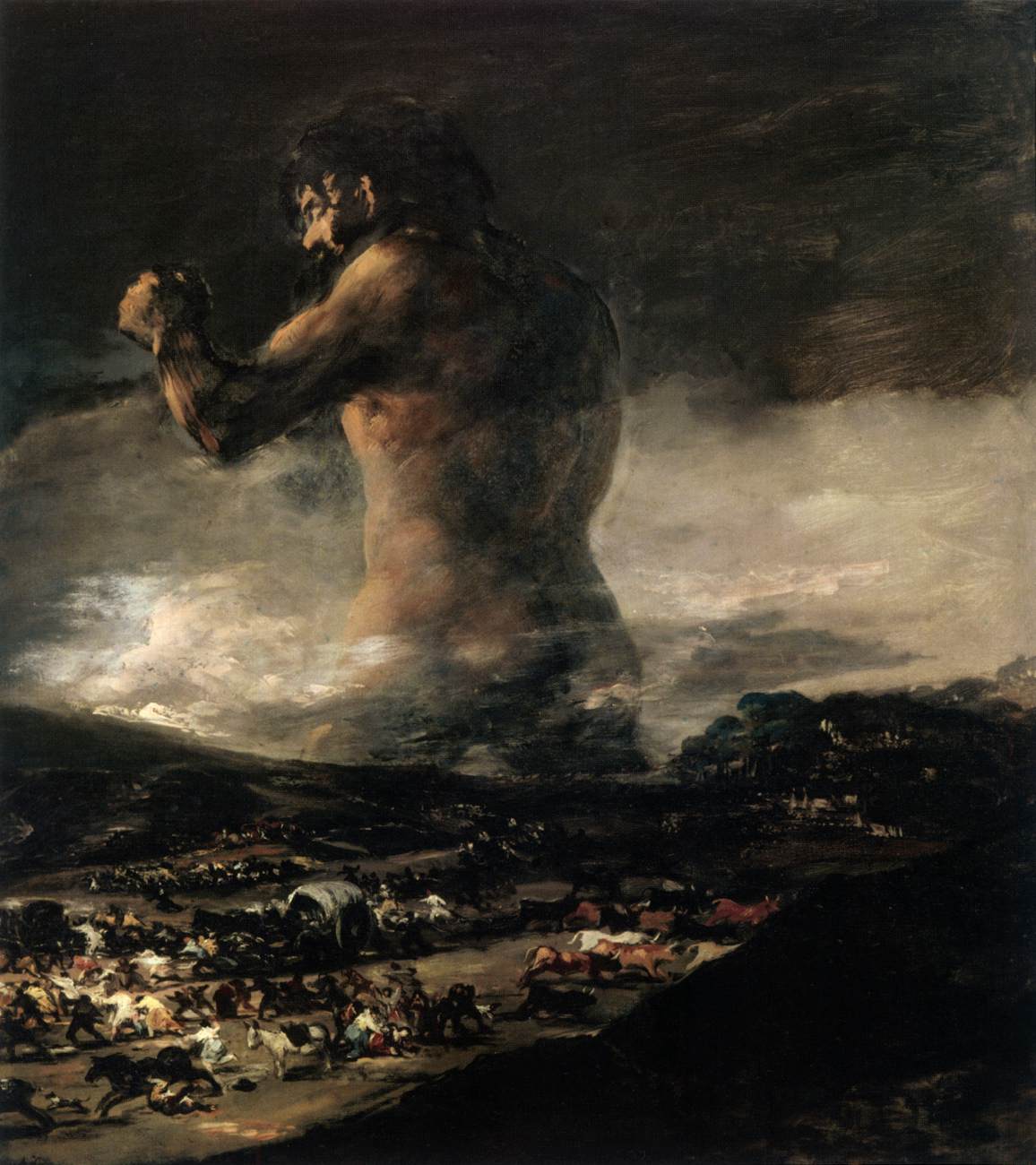
The underworld forces of machine civilization
Of no different opinion was Guénon [15], who was among the first to highlight the danger of the "incessantly increasing speed" of inventions, due to the fact that they "put into action Strength, the true nature of which is entirely unknown to those who use them themselves; and this ignorance is the best proof of the absolute nullity of modern science as regards its explanatory value, that is, as knowledge " [16]. The consequences of such arrogant actions, in the more or less near future, can only be disastrous, since [17]:
« Whoever unleashed the brute forces of matter will perish crushed by these same forces, of which he ceased to be truly the master from the moment he imprudently set them in motion. and of which he cannot even presume to indefinitely halt the fatal march. "
In these terms, the western mechanistic-scientist crusade takes on the contours of a real mad march towards the underworld, understood not only in an involutional / descending sense but also mythically as a place other, a sort of furnace in which titanic and cyclopean forces lie dormant that man has unfortunately awakened "without having risen beyond matter". This observation was made thirty years before the publication of At the wall of time from the poet of cosmic horror HP Lovecraft, which in a letter to James Ferdinand Morton (October 19, 1929) was thrown into a passionate one tirade against the "standardized and rigidly programmed civilization of machines", asserting that [18]:
«Who thinks that man lives by means of ragione and that he is perfectly capable of controlling the effects and consequences of the things he invents, holds a position that psychology proves outdated. For a while, man can actually use machines, but after a while he mentally gets used to mechanization and the state of dependence on the machine becomes such that it is the machines that use man. - flattening it on their perfect efficiency and on their absolutely useless exactness of action and thought. "
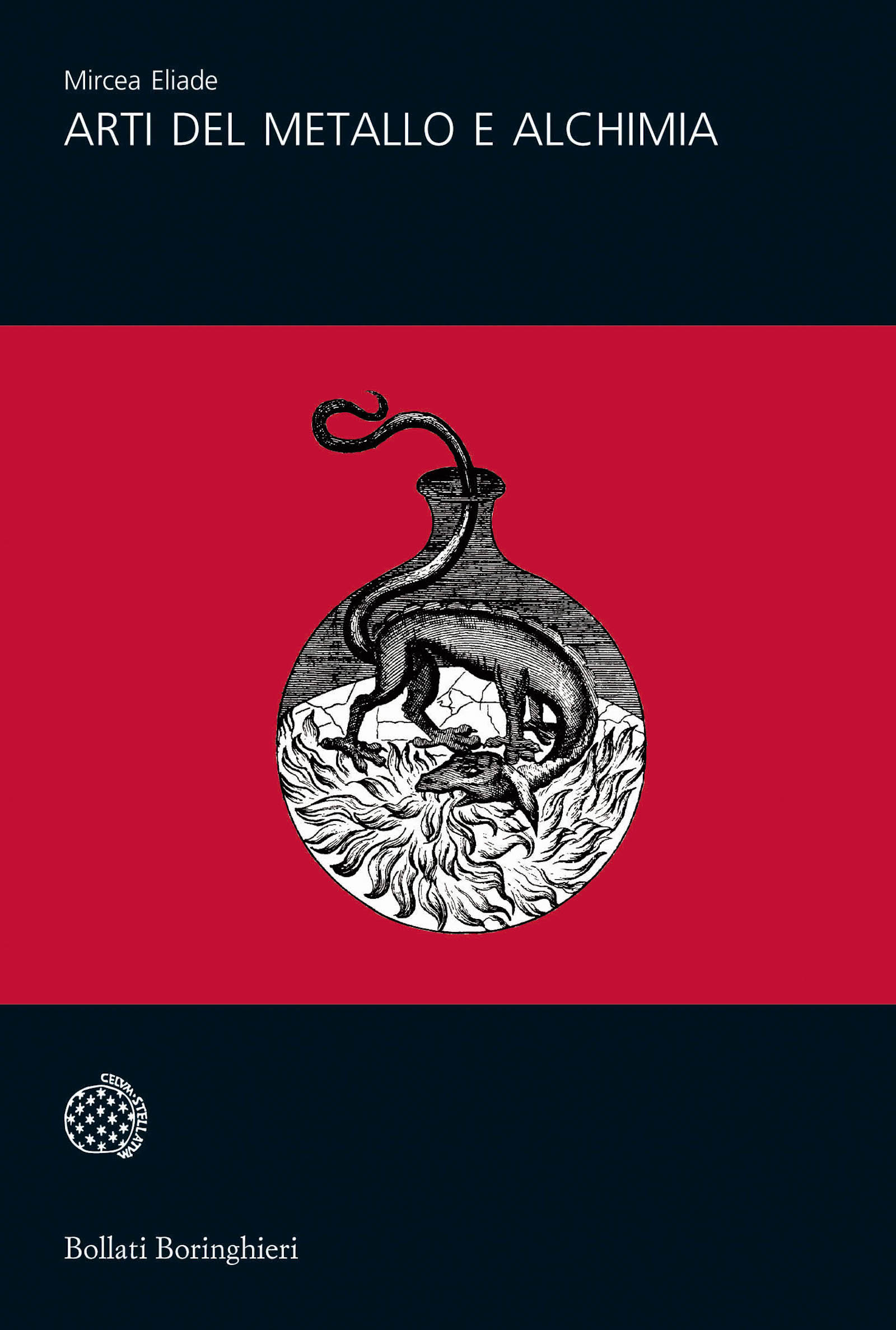
Mircea eliade, for its part, in Metal arts and alchemy (1956) denounced the titanic character inherent in the acceleration of modern science, going so far as to theorize that [19]:
"In the nineteenth century, dominated by physicochemical sciences and industrial take-off, man came to replace Time, in his relations with Nature. Then, in hitherto unimaginable proportions, his desire to precipitate the temporal rhythms, through an ever more rapid and effective exploitation of mines, coal deposits, oil resources […]. It was thus demonstrated, for the first time, how this is possible to abolish Time, to prepare substances in the laboratory and in the factory in such quantities that Nature would have taken millennia to obtain them. »
Eliade interprets all of this as one grave violation of the "cosmic rhythm", which gives rise to an "abstract time" (a phrase that Jünger also uses), artificial, accelerated and "compressed": such are the characteristics of modern Western society itself. Frithjof Schuon was of the same opinion as Eliade, since he wrote is "By rejecting or losing celestial measures, man has become the victim of time: by inventing the machines that devour duration, man has escaped the peace of space and threw himself into a vortex with no outlet" [20]. By addressing the issue of the advent of the mechanized era, he warned the reader of the ever-increasing risk of dehumanization in an increasingly machine-dominated world. [21]:
« The machine transposes the need for happiness on a purely quantitative level, which is unrelated to the spiritual quality of the work; it takes away from the world its homogeneity and transparency and detaches man from the meaning of life. "
He was of no different opinion Guenon, when he wrote that "wanting to dominate [...] matter and bend it to their ends, men, [...] have only managed to make slaves of it; not only did they limit their intellectual ambitions [...] to inventing and building machines, but they ended up becoming machines themselves " [22]. Jünger, for his part, with regard to scientific and technological progress, speaks of the "fleet of machines in which they are transforming the world "[§43], highlighting its unpleasant characteristics monotony, leveling e disenchantment, "Without taking into account the destructive potential that machines possess in times of war and peace". The enthusiasm of modern man in the face of the mirages of science and technologyultimately reminds the philosopher "the astonishment of the savage who are shown mirrors, watches and firearms, objects that are now arousing enchantment Now terror in his soul. And he offers the fruits of his land, its ornaments, he makes himself slave, in order to possess them "[§43].
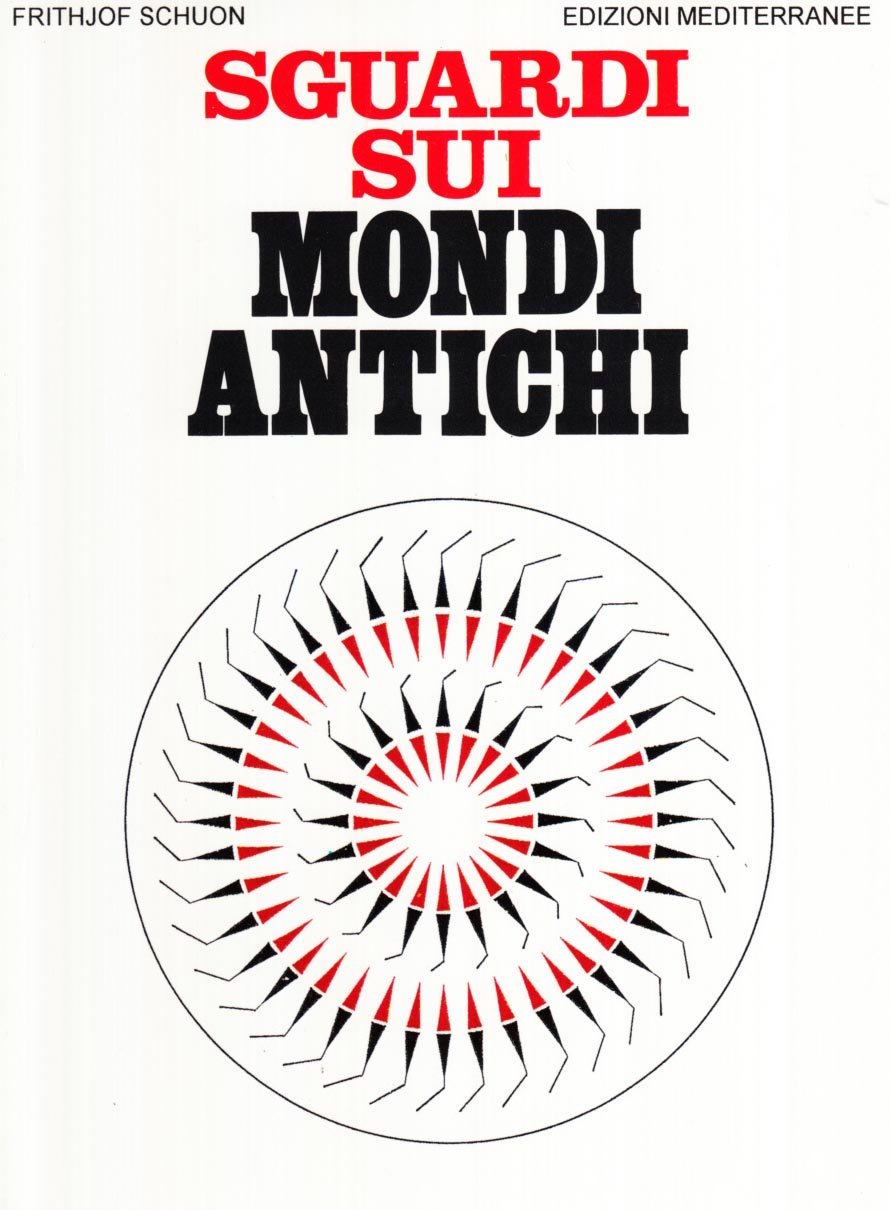
Note:
[1] F. Volpi, Jünger, a life lived as a primordial experience
[2] J. Evola, Riding the tiger, P. 105
[3] E. Junger, Treaty of the Rebel, §10
[4] J. Evola, The world upside down, P. 74
[5] F. Lamendola, Ernst Jünger. Restless witness of our time
[6] J. Evola, Revolt against the modern world, P. 420
[7] Ibid, p. 422
[8] There is here a reference to the doctrine of the Synarchy, advocated among others by the Marquis JA Saint-Yves d'Alveydre - a sort of middle ground between an occultist and a political philosopher -, who argued that the state must be "treated like a living being, with a spiritual and intellectual elite as the brain, and the trunk and limbs - the workers, soldiers and technicians - ready to carry out their orders "[W. Kafton-Minkel, Underground worlds, p. 237]. This doctrine was also held in the utmost account by many traditionalists of the twentieth century, including Evola, who was able to write [On the fall of the idea of the state in Apolicy, p. 52]: «The basic idea […] is that of a State not only as an organism, but also as spiritualized organism […]. It is therefore a political-social hierarchy with an essentially spiritual foundation, in which each caste or class corresponded to a determined typical form of activity and to a well-determined function in the whole [...] Thus, for example, in the Vedic tradition the four castes are made correspond to four fundamental parts of the 'body' of 'primordial man' ».
[9] "America too - wrote Evola [Revolt against the modern world, p. 424] -, in the essential way of considering life and the world, he created a 'civilization' which represents the precise contradiction of the ancient European tradition. It has definitively introduced the religion of practice and performance, it has placed the interest in profit, in large industrial production, in mechanical, visible, quantitative realization, above any other interest. It gave rise to a soulless grandeur of a purely technical-collective nature, devoid of any background of transcendence and any light of interiority and true spirituality; it too has opposed the conception, in which man is considered as quality and personality in an organic system, that in which he becomes a mere instrument of production and material performance in a conglomerate conformist system ». Further on [Ibid, p. 428] adds: "In the bewildering grandeur of American metropolises where the individual - 'asphalt nomad' - realizes his nullity before the immense reign of quantity, groups, trusts and omnipotent standards, the sprawling forests of skyscrapers and factories, while the rulers are chained to the very things they dominate, in all this the collective manifests itself even more, in an even more faceless form, than in the tyranny exercised by the Soviet regime over often primitive and abulic elements ».
[10] J. Evola, Revolt against the modern world, P. 432
[11] Ibid, pp. 432-3
[12] M. Eliade, Myth and reality, pp. 84-5
[13] L. Sanjakdar, Mircea Eliade and the Tradition, P. 293
[14] J. Evola, Revolt against the modern world, p. 143-4
[15] Evola wrote in the introduction to the first Italian edition of The crisis of the modern world (1937): "In no modern author is the revolt against our materialistic, scientific, democratic civilization, against a 'Western' order, which was really just a badly organized disorder and bearing in itself the principle of the most tragic crises ».
[16] R. Guénon, The crisis of the modern world, P. 142
[17] Ibid, p. 147
[18] HP Lovecraft. The horror of reality, P. 146
[19] M. Eliade, Metal arts and alchemy, P. 160
[20] F. Schuon, Glimpses of ancient worlds, P. 33
[21] Ibid, pp. 20-1
[22] R. Guénon, The crisis of the modern world, P. 139
Bibliography:
Mircea ELIADE, Metal arts and alchemy (Bollati Boringhieri, 1987)
Mircea ELIADE, Myth and reality, Borla, Turin 1966
Julius EVOLA, Apolitia. Writings on "existential orientations" 1934-1973, edited by R. Paradisi (Julius Evola Foundation, Rome; Controcorrente ed., Naples, 2014)
Julius EVOLA, Riding the tiger (Mediterranee, Rome, 2012)
Julius EVOLA, The world upside down. Critical essays and reviews 1923-1959, edited by Renato Del Ponte (Arya, Genoa, 2008)
Julius EVOLA, Revolt against the modern world (Mediterranee, Rome, 1984)
René GUENON, The crisis of the modern world (Mediterranee, Rome, 2015)
Ernst JÜNGER, At the wall of time (Adelphi, Milan, 2012)
Seriously JÜNGER, Treaty of the Rebel (Adelphi, Milan)
Walter KAFTON-MINKEL, Underground worlds. The myth of the Hollow Earth (Mediterranee, Rome, 2012)
Francesco LAMENDOLA, Ernst Jünger. Restless witness of our time (Centro Studi La Runa, 21 May 2010)
HP LOVECRAFT. The horror of reality. The worldview of the fantastic narrative renovator, edited by G. de Turris and S. Fusco (Mediterranee, Rome, 2007)
Lara SANJAKDAR, Mircea Eliade and the Tradition. Time, myth, cosmic cycles (The Circle, 2013)
Frithjof SCHUON, Glimpses of ancient worlds (Mediterranee, Rome, 1996)
Frank VOLPI, Jünger, a life lived as a primordial experience (Centro Studi La Runa, 7 December 2011), taken from Republic, Nov. 2 2000

The warmest congratulations to the author of the last two articles. It was a rare thrill to read them. The re-discovery of Eliade is also very interesting.
Really thank you to the author.
A heartfelt thanks to you!